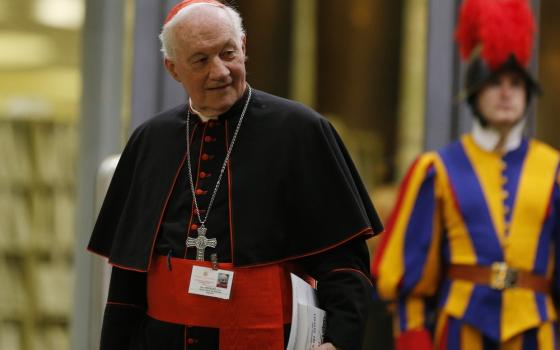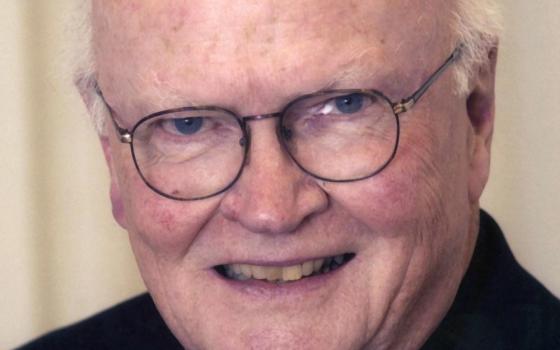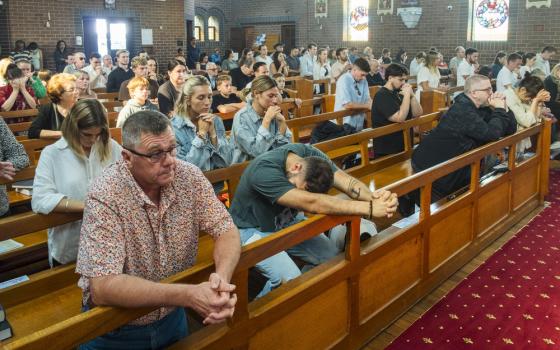My friend Robert Talib Douglas, an inmate on death row in Pennsylvania, died last Friday without realizing what he spent much of his life fighting for -- a fair trial.
Ironically, it was not death by electric chair, Pennsylvania's original sentence for him, but pancreatic cancer that killed him. He was 55 years old.
Twenty-eight years ago, Robert was convicted of two crimes committed seven months apart -- the murder of his close friend Donald Knight (Aug. 28, 1980) and the robbery of TV salesman Harry Feldman (March 11, 1981).
The odds were against Robert from the outset. He was a black man with a criminal record from an isolated, crime-ridden community in northern Philadelphia. But in his fight for a fair hearing, he inspired many people, myself included.
My oldest son began writing to Robert in 1997, after receiving his name as prisoner pen-pal during a march against the death-penalty. To facilitate the correspondence, I too wrote letters.
What began as an act of charity on my part became a source of inspiration, and I looked forward to hearing from the inmate in Pennsylvania whose determination and faith intrigued me. A convert to Islam, Robert began every letter with an accolade to God: "In the name of God, most Gracious, most merciful," he would write, or simply, "God is great." The habit reminded me of the old Catholic practice of marking the opening page of school essays with the acronym "JMJ" (Jesus Mary Joseph), signifying that even something as mundane as a book report could become an offering to the Holy Family.
Robert's cases dominated our correspondence. He would send me documents discrediting the charges against him -- police reports, trial transcripts and affidavits, including one from his sole accuser in the murder case, recanting the accusation, and one from his co-defendant in the robbery trial who stated unequivocally Robert was not involved. Accompanying these were essays written in Robert's vigorous, inimitable style: "Allow me to give you an insight of the arrest and conviction of Robert Talib Douglas, which was contrived through deliberate illegal, immoral acts of conspiracy, perjury, fabrication, falsified statements, favorable remedy and deniability by police and their prosecuting authorities." He would then parse through the details of his case, details that were concealed or distorted during his fateful murder trial held in January of 1983.
Advised not to take the stand, Robert said very little during the three-week proceedings that resulted in his sentence of death. Instead, he listened as court psychiatrists labeled him as having an "anti-social personality disorder" and unlikely to change and the prosecution likened him to an animal that "should just be plain put to death as we put mad dogs out of their misery." Silent during these attacks, Robert spent the rest of his life trying to refute this depiction of him as crazed beast, unworthy of life.
I would often read his letters and essays with half attention and then stuff them into a drawer, fantasizing I might some day write a Pulitzer prize-winning expose that would result in his release. I even imagined the party celebrating his liberation. There would be lots of dancing, of course.
Periodically, I would check in with his attorneys to see if we could "go public," but Robert's appeals were still creeping through the Pennsylvania judicial system (the state's Supreme Court is apparently notorious for sitting on cases that might result in a reversal of a conviction) and his lawyers advised silence.
Then, last fall, Robert reported dramatic weight loss. He felt nauseated much of the time. The guards, he said, were losing or disregarding his medical slips requesting a clinic visit. He distrusted the competency of the prison doctors. "GET ME OUT OF HERE," he wrote in late December. In February, I learned he had cancer.
The news prompted me to open the drawer with his letters. I began poring over his documents, and the transcripts of his 1983 trial, seeing what he and many others have claimed all along that he did not have a fair trial. His court-appointed attorney was woefully inexperienced, his prosecutor unscrupulous. Michael McLaurin, the prosecution's only eyewitness, never appeared at trial to testify against him. Instead, McLaurin's testimony, given at a preliminary hearing, was read into the court record, effectively denying Robert the right to confront his accuser, a right guaranteed in Article VI of the Constitution.
There were other irregularities. The defense attorney never subpoenaed character witnesses. The prosecution withheld evidence favorable to the defense. Police officers gave deceptive testimonies.
Robert, who had a 10th-grade education, became something of a jailhouse lawyer. He filed pro-se petitions. His attorneys filed appeals. In 1989, an en banc panel of judges ruled that he did indeed have ineffective counsel and deserved a new trial, but the state's higher courts disagreed. What followed was an excruciating cycle of appeals and a long, fruitless wait for a ruling from the Pennsylvania Supreme Court.
Meanwhile, Robert remained on death row, a unit with 23 hour lockdown. He wrote 13 chapters of an autobiography. Chapter One, titled "Damn Death Row," vividly describes the prison procedures for an inmate prior to his execution -- the strip search, the checking of veins to determine where to insert the needle, the questions about where to send the body. Reading it, I am again reminded how the death penalty is a form of torture.
But Robert's papers also include an essay criticizing the U.S. invasion of Iraq and the lies behind it. He dismissed as "bull" then-Vice-President Dick Cheney's denial of having ties with Haliburton, a company with numerous contracts in Iraq. "Are ethics only applicable to the vast majority of Americans who are not rich and powerful?" he asked.
Over the years, Robert befriended a number of people through his letters. His circle of writing friends included several families. During his illness, I met, via e-mail, a mother and daughter who had been writing to him since the mid-1980s. One year, he sent out 43 handmade Mother's Day cards.
Although our lives were utterly different, I count Robert among my most important friends. Prior to meeting him, I vaguely knew about the inequities of our criminal justice system. Now the details of the injustices are clearer. Due process is not equally available to every American. Poverty, race, the political aspirations of judges and inhumane court rulings are just some of the obstacles that can prevent a person from getting a fair hearing. Yet amid deficits and setbacks, Robert doggedly pursued his quest for justice. In so doing, he provided a remarkable example of persistence.
Most importantly, friendship with him showed me love's ability to penetrate the most desolate of places. When I last saw him in April, I was struck by how tenderly the prison guards treated him. The morphine was ineffective and he was in a lot of pain, but he visited as long as he could, asking about my children, smiling as he recalled a recent visit with his family. "I love you," were the last words he said to me. I later learned a few Muslim prisoners prayed and kept vigil with him in the final days of his dying.
Robert leaves behind, two grown children, three siblings, a number of nieces, nephews, in-laws, and his circle of writing friends. This week, his family hoped to pick up his property from prison, which includes boxes of his papers.




